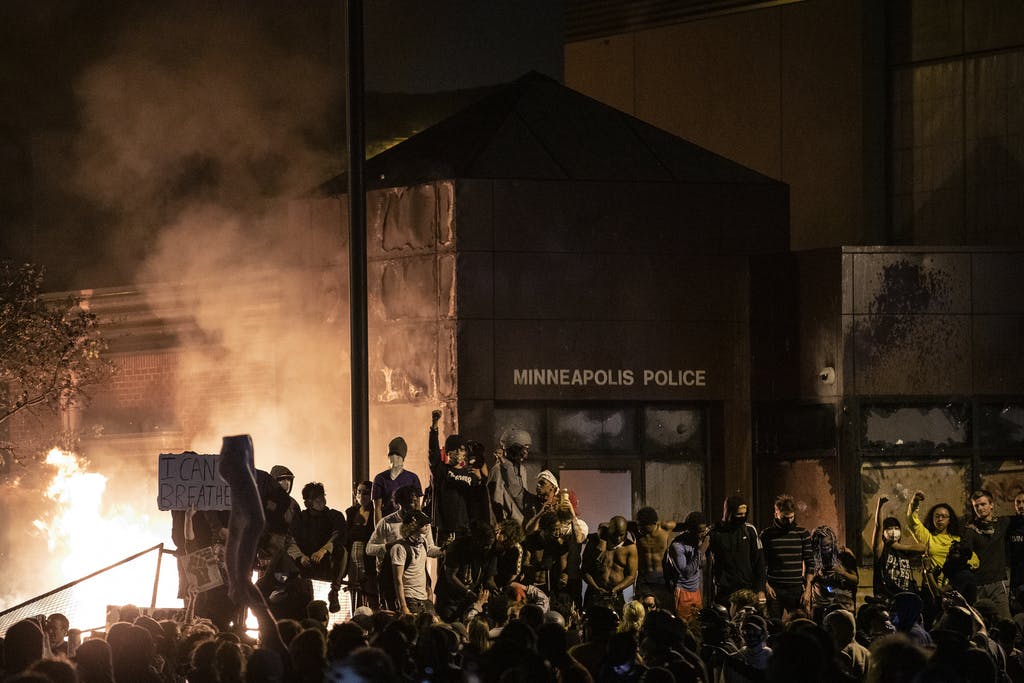|
Tim Cooper, of St. Paul, Minn., shares his experiences living in the Twin Cities in the aftermath of George Floyd’s death. If you would like to share your thoughts on Clearing the Fog, please contact us here. Your eyes open to the sound of gunfire, a pitched battle on the far periphery of your being. The shots—staccato, syncopated—lay siege and surround you in fear. Immediately you wonder, do you flee or do you surrender? Do you hold firm or do you seek shelter? Where could you go? To whom or to what would you capitulate? And then you realize that distant roads have been reopened, that the sound you hear is nothing more than semis on the faraway interstate rebounding over undulations in the road. Why have you never heard this before? Is it the silence of the recent curfew, of inertia, of comfortable isolation, that awakens you to a noise that was always there? But this fear, this pervasive fear—how do you account for it? You remember two days previous, unthinking as you take your dog for her normal 5 a.m. walk. Ah, the comfort of your routine, your beloved sense of order. Behind you, flashing lights from a police cruiser as you trek down the deserted street. When he pulls up beside you the policeman wearily reminds you of the curfew’s hours, suggests staying closer to home. He attempts a comforting smile but doesn’t receive one from you in return. Later, you’re simply grateful that he didn’t turn the siren on full-blare. The thought of being physically accosted and harmed by him had never occurred to you. And why not? Because you have armor that shields you even as you defy your city’s curfew. You are white, male, middle-class, educated, not tall, not overly muscular—in short, not a threat. You’re not black, brown, yellow, or red; you’re not a recent immigrant; your speech sounds local. Without this armor, would you have been gently prodded to return quietly to your home? Recent events tell you no. Your beloved city is on fire, and you can measure the anger and trepidation everywhere you go. There is a despair that permeates, that is all-encompassing. Drug stores, gas stations, grocery stores, banks are boarded up and closed. You drive across the state line to Wisconsin to put gas in your car. A branch of your bank is there and you can get medication from a pharmacy. The grocery stores appear well-stocked. You carry on with the charade of normalcy. But you know better. You recall that you also live in a time of pandemic, that participation in demonstrations of solidarity for George Floyd and for those without power or voice involve calculated risk. You do the arithmetic, and it still demands that you participate, that to do less than all you can will result in an amputated life of insidious horror—for you and for others. Solace is an ephemeral commodity. You try to comfort your friends—both near and far—and they do the same for you. You try to galvanize them to political action, and you plot strategies of engagement. You want desperately to affect change. And then you recall that June 6 is the anniversary of Robert Kennedy’s assassination. Bobby, killed advocating for change, killed because he believed in the power of existential action, killed because he cared. You consult his speech in Indianapolis on the night of Martin Luther King’s murder, a speech that always comforts and calms you. And Bobby, quoting the Greek poet Aeschylus, said: Even in our sleep, pain which cannot forget falls drop by drop upon the heart, until, in our own despair, against our will, comes wisdom through the awful grace of God.
1 Comment
Charles Goodlett
6/7/2020 01:40:24 pm
Thank you, Tim (and Sallie) for this witness and reflection. It calls to mind particularly the lament of the second verse of "Lift Every Voice and Sing" written by James Weldon Johnson (with music by his brother, J. Rosamond Johnson), long associated with the struggle of African-Americans and sung in many churches and gatherings this week.
Reply
Your comment will be posted after it is approved.
Leave a Reply. |
Details
Archives
June 2023
Categories
All
|



 RSS Feed
RSS Feed